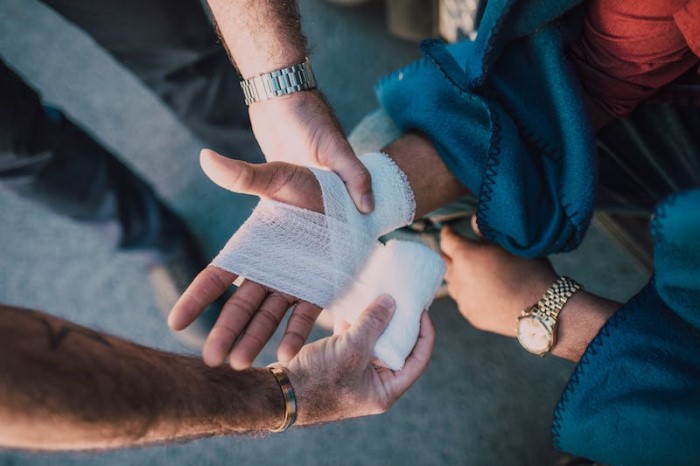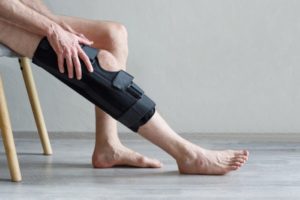
The number of personal injury cases filed in a single year is increasing. The United States Courts data shows that the filings surged by 97% in 2020. You’re likely feeling overwhelmed if you’ve been injured in an accident.
You may have a lot of questions about your rights and compensation. That’s why speaking with a personal injury lawyer is essential before deciding if they are the best fit for your situation.
This article will help you understand what to expect during your initial consultation with a personal injury attorney so that you can make an informed decision about whether they are suitable for your case.
The Initial Consultation Is Usually Free
Usually, your lawyer will take 33% of the total settlement amount as fees. It can also go up to 45 to 60% of the settlement amount. But that does not mean you will have to pay every lawyer you meet for the case. The initial consultation is usually free.
You can expect to meet with the lawyer for approximately 1–2 hours, and they will not charge you anything for this time. During this meeting, they will discuss your case’s facts and possible strategies to represent you.
They may also give you an estimate of what it would cost to handle your case. Suppose any costs are associated with hiring an attorney in general or managing your particular case. In that case, those will also be explained so that both parties can come away from the meeting with a better idea of how things work out of court.
The Lawyer Will Review the Facts of Your Case
Once you and your lawyer have agreed to work together, he or she will review the facts of your case and determine what legal options are available to you. This can take anywhere from five minutes to an hour, depending on how complex the case is.
A personal injury consultation is generally an informal meeting between an injured person and a potential attorney. The purpose of this meeting is for you to understand better what options may be available for your specific situation. To know more, seek guidance from Joplin lawyers.
For example, suppose you were rear-ended in traffic by another driver speeding through a red light and did not stop after hitting your car. In that case, there may be grounds for filing a personal injury lawsuit against that individual or entity responsible for causing injury while driving their vehicle on public roads.
It’s essential that during this initial consultation with an attorney, you clearly explain all relevant details about what happened so they have enough information before deciding whether or not pursuing legal action will be worth their time/effort/expense considering all factors involved, like costs incurred during litigation, etc. This meeting will also allow you to ask questions to the lawyer and know his or her experience.
Auto accidents and falls are two of the most common personal injury cases. For instance, NHTSA estimates that auto accident fatalities rose by 10.5% in 2021, taking the total number to around 42,915. On the other hand, over 800,000 people are hospitalized annually for falls.
Suppose you fell somewhere, and the lawyer you are talking to has a lot of experience in auto accident cases. It might be best to switch to someone with expertise in slips and falls.
You can find competent skip and fall attorneys at Sweeney Merrigan. The lawyers in such firms are always very experienced and can help you with any personal injury case. Similarly, you can also look for other law firms with specialized attorneys.
The Lawyer Will Determine Whether You Actually Need a Lawyer
You will most likely be asked to tell your story to the lawyer. This gives the lawyer an idea of what happened and what kind of compensation you seek. The lawyer will also gather evidence for your case file and determine whether there are legal grounds for claiming a third party if someone else caused your injury.
The next step is for your attorney to analyze all of this information to determine if you have enough evidence to make a claim in court against another person or business entity that has caused harm or damage due to their negligence or misconduct. If so, they’ll also explain how much time it may take to resolve through settlement negotiations or trial proceedings.
According to HG.org, the most common pieces of evidence in a personal injury case are:
- Pertinent physical evidence
- Evidence from the scene
- Photos and videos
- Documents for the injury, etc.
The Lawyer Will Assess the Strengths and Weaknesses of Your Case
Your lawyer will be able to assess the strengths and weaknesses of your case, which will help him or her determine whether or not you need a lawyer. The attorney may ask for details about the incident that led to your injuries and then review the facts of your case to determine if there’s evidence that could be used in court and whether it would support your claim.
Your personal injury lawyer will likely ask questions like:
- When did the accident happen?
- What happened? Who was involved? What were their roles (driver, pedestrian, passenger)?
- How many people were injured? How seriously were they hurt? Were they hospitalized overnight or longer than 24 hours after being treated in an emergency room following their accident-related injuries?”
The lawyer will also determine if there’s a need to go for trials or if the conflict can be resolved outside the court. Most cases are resolved through mediation without going to trials. In fact, only 4% of the total personal injury cases filed go to trials.
Documents to Take During the Initial Consultation
During your initial consultation with a personal injury lawyer, you should bring along the following:
- Your insurance policy. If you have health insurance, your lawyer will want to see what’s covered. And if you have auto insurance, the lawyer will need to see how much it is worth and how much coverage you have.
- Medical bills or other documents related to treatment for injuries sustained in an accident. You may want to be sure that these are kept in good condition so that they can be adequately evaluated by the attorney later if necessary.
- A police report (if any). This document might include details about who was involved in the accident, what happened during it, etc., information that could help determine liability in certain cases.
Conclusion
If you’ve been injured, it can be challenging to know if you have a case or what to do next. The best thing you can do is take some time and consider your options before making any decisions about legal representation.
This way, when you meet with a personal injury lawyer for an initial consultation, you’ll be better prepared to ask questions, get the answers that matter most, and hopefully feel confident knowing what lies ahead.








